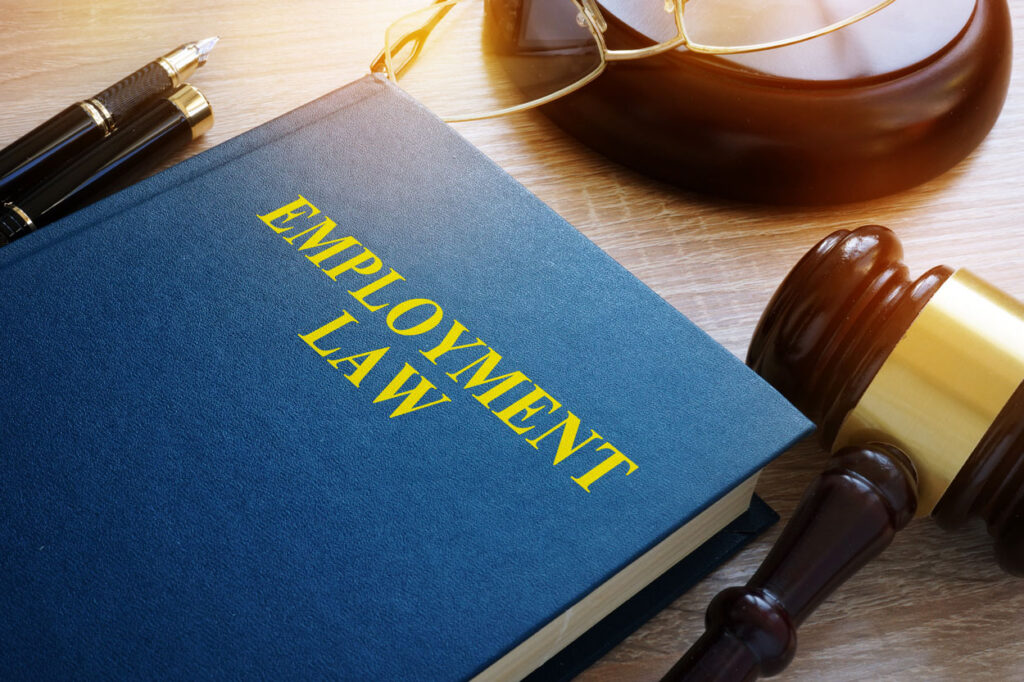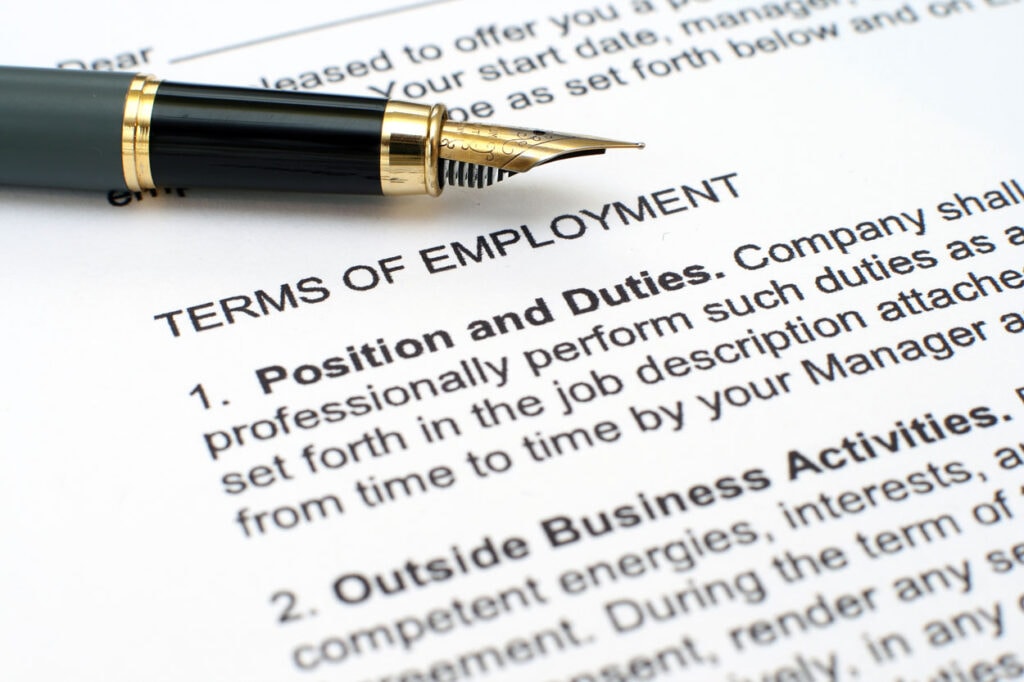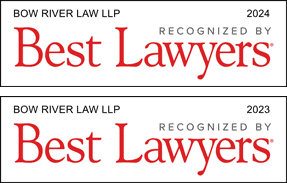- Home
- Services
- Constructive Dismissal
- COVID-19
- Discrimination / Human Rights
- Employee Sued by Employer
- Employment Contracts: Drafting / Review / Negotiation
- Employment Policy Drafting / Review
- Fiduciary Obligations
- Harassment / Bullying
- Independent Contractors
- Just Cause For Termination
- Lay-Offs
- Non-Competition / Non-Solicitation
- Professional Regulation
- Severance Review / Negotiation
- Union / Labour Law
- Workplace Investigations
- Wrongful Dismissal / Unjust Dismissal
- About
- Our Team
- Blog
- Call Now: 587-391-7601
- Contact Us
Constructive Dismissal in Alberta: The Ultimate Guide
Constructive Dismissal Discrimination Employment Contracts Employment Law Harassment Human Rights Severance Unjust Dismissal Wrongful Dismissal

In the realm of employment law, constructive dismissal is a concept that is both complex and consequential. For employees in Alberta who believe they have been subjected to this form of unjust treatment, it is important to understand their rights, the legal framework surrounding constructive dismissal, and the steps involved in pursuing a claim. This guide is directed primarily at non-lawyers. Lawyers and those who are keen to learn more about the technical operation of constructive dismissal should do further research, including by reading summaries of relevant caselaw.
Understanding Constructive Dismissal: Definition and Meaning
Constructive dismissal occurs when an employer significantly alters the terms of an employee’s job or creates a hostile work environment, resulting in the employee feeling compelled to resign. It is important to note that this type of dismissal is not an actual termination initiated by the employer; instead, it is a resignation by the employee after the employer breaches the employment terms or fails to properly address a hostile work environment.
Alberta recognizes constructive dismissal as a violation of an employee’s rights and provides legal recourse to those who have been wrongfully subjected to it.
When an employee is dismissed in this manner, it can have a profound impact on their professional and personal life. The sudden change in job conditions can leave them feeling betrayed, stressed, and uncertain about their future. The emotional toll can be significant, as they may have invested years of their life into their career, only to have it abruptly disrupted by their employer’s actions.
One common scenario where constructive dismissal may occur is when an employer unilaterally reduces an employee’s salary without their consent. This can create financial hardship for the employee, affecting their ability to meet their financial obligations and provide for themselves and their family. The stress of financial instability can spill over into other areas of their life, causing strain on relationships and overall well-being.
In addition to salary reductions, other changes to an employee’s job that may constitute constructive dismissal include demotions, significant changes in job responsibilities, changes in reporting structure, change in corporate structure, forced relocation, change in ownership of the employer, requiring an employee to do illegal acts, or the existence of a toxic work environment created by harassment or discrimination. Sometimes more than one of these factors are occurring at once, which generally increases the chances that what is occurring is constructive dismissal. These actions can erode an employee’s sense of worth and undermine their professional growth and development.
When faced with these sorts of situations, employees often find themselves at a crossroads. They must weigh the pros and cons of staying in a job where their employer has changed their employment terms or where a toxic work environment is present, versus the uncertainty of quitting their job and finding new employment. This decision can be particularly challenging if the job market is competitive or if the employee has specialized skills that may limit their options.
Fortunately, in Alberta, employees have legal protections against constructive dismissal. For example, the Employment Standards Code, Alberta Human Rights Act, Occupational Health and Safety Act, and the common law work together to recognize that employers have a duty to provide a safe and respectful work environment. If an employee can demonstrate that they were subjected to an unsafe or toxic work environment, they may be entitled to compensation for lost wages, reasonable notice (severance), damages for emotional distress, and in some contexts, potentially even reinstatement to their previous position.
The common law also recognizes that employers to not generally have absolute rights to change the employment terms of employees. If an employee can demonstrate their employer has changed their job terms, they may be entitled to severance and other damages.
It is important for employees who believe they have experienced constructive dismissal to seek legal advice promptly, before resigning if possible. Employment lawyers can assess the circumstances of the case and provide guidance on the best course of action. They can help employees understand their rights, gather evidence to support their claim, and negotiate with the employer or represent them in legal proceedings if necessary.
In conclusion, constructive dismissal is a serious violation of an employee’s rights and can have far-reaching consequences. It is crucial for employees to be aware of their rights and seek legal recourse as soon as possible if they believe they have been wrongfully subjected to this type of situation. By doing so, they can protect their interests, hold employers accountable, and potentially obtain the compensation they deserve.

The Legal Framework: Constructive Dismissal in Alberta Employment Law
In Alberta, constructive dismissal is governed by the common law and other various human rights and employment standards legislation. The Alberta Labour Relations Code and collective agreements also provide constructive dismissal protections for unionized employees in some cases.
To determine whether an employee has experienced constructive dismissal, the courts consider factors such as any written employment agreement, the past practices of the parties, the nature and extent of the changes made by the employer and any other surrounding circumstances that are specific to the workplace and the individual employee.
What to Expect During a Constructive Dismissal Claim
Pursuing a constructive dismissal claim involves a multi-step process that requires careful documentation and consideration. Before proceeding with a claim, it is crucial to gather evidence, seek legal advice, and be prepared for potential negotiations or legal proceedings.
Prior to actually suing an employer, usually the employment lawyer representing the employee will send a confidential letter to the employer describing the circumstances of constructive dismissal and offering to settle the matter out of court. This often results in a settlement, but if it does not then the lawyer may recommend pursuing a claim.
Even after a formal claim is filed, both parties may still engage in negotiations or mediation to attempt to resolve the matter outside of court. If a resolution cannot be reached, the matter will usually then proceed to be decided by the appropriate tribunal or court.
Compensation and Severance: What You Need to Know
When successful, constructive dismissal claims can result in various forms of compensation for employees, including severance pay, back pay, and damages for loss of income and benefits. It is important for employees to understand their entitlements and consult with an employment lawyer to ensure they receive fair and just compensation.
Calculating the amount of compensation in constructive dismissal cases can be complex, as it usually involves determining the employee’s reasonable notice period, which takes into account factors such as length of service, age, and the availability of comparable employment. There are many other potential factors to determining a reasonable notice period, and an employment lawyer can help identify what they are and whether they likely apply to a specific employee.
How to Identify Constructive Dismissal: Signs and Signals
Recognizing constructive dismissal can be challenging, as it often involves subtle changes to the employment relationship. However, there are certain signs and signals that employees should be aware of. These include significant reductions in pay or hours, demotions without valid reasons, increased workload or unreasonable expectations, and a hostile or toxic work environment.
Employees who suspect they may be facing constructive dismissal should document any changes, seek legal advice, and explore their options before making any decisions.
The Claim Process: Steps for Filing a Constructive Dismissal Claim
Filing a constructive dismissal claim involves several steps that must be followed diligently. Employees should consult with an employment lawyer to understand the specific requirements and deadlines. The general process includes:
- Gathering evidence and documenting the changes or incidents leading to the resignation
- Seeking legal advice as early as possible to assess the strength of the claim and provide guidance on next steps
- Attempting negotiation or mediation to resolve the matter amicably
- If necessary, filing a claim with the applicable tribunal or court
- Attending hearings or proceedings and presenting a compelling case
- Awaiting the decision or settlement and, if successful, receiving compensation
Your Rights as an Employee in Constructive Dismissal Cases
Employees facing constructive dismissal have certain rights that protect them from unfair treatment. These rights include the right to reasonable notice or pay in lieu of notice and protection from discrimination and harassment.
It is essential for employees to educate themselves about their rights and consult with an employment lawyer to ensure these rights are upheld throughout the claim process.
Unionized Employees and Constructive Dismissal: Unique Aspects and Considerations
For unionized employees, constructive dismissal claims may involve additional considerations. The collective bargaining agreement, union representation, and grievance procedures can help determine if a constructive dismissal claim is possible, and can impact the process and outcome of a constructive dismissal claim.
Unionized employees should consult both their union and an employment lawyer to navigate the complexities of constructive dismissal within a unionized context.
Wrongful Dismissal vs Constructive Dismissal: Understanding the Differences
It is important to distinguish between wrongful dismissal and constructive dismissal, as they differ in key respects. Wrongful dismissal occurs when an employer terminates an employee without just cause and without providing proper notice or pay in lieu of notice.
In contrast, constructive dismissal involves an employer making significant unilateral changes to the employee’s terms of employment that fundamentally alter the employment relationship, leading the employee to resign.
Although the way a wrongful dismissal and constructive dismissal occur are different, usually the compensation and other remedies available for these two kinds of dismissal are the same.
Understanding these distinctions is vital when assessing a potential claim and seeking appropriate legal advice.

When to Seek Legal Help: The Role of Employment Lawyers in Calgary
Employment lawyers play a crucial role in Calgary constructive dismissal cases, providing legal advice, representation, and advocacy for employees facing unjust treatment. Consulting with an employment lawyer in Calgary can help employees understand their rights, assess the strength of their claim, and navigate the complexities of the legal system.
It is advisable to seek legal help as early as possible to ensure the best possible outcome and protect one’s rights throughout the entire process.
Common Causes for Constructive Dismissal: From Wage Reductions to Hostile Work Environments
Constructive dismissal can arise from various causes, ranging from significant changes to an employee’s compensation or work hours to the creation of a toxic or hostile work environment. Some common causes and signs of constructive dismissal include:
- Unilateral wage reductions or demotions without proper justification
- Excessive and unreasonable increases in workload
- Temporary Lay-Offs
- Discrimination, harassment, or bullying in the workplace
- Changes in job duties or responsibilities without reasonable cause
Employees experiencing any of these situations should consult with an employment lawyer to discuss their rights and options.
Constructive Dismissal and the Toxic Workplace: Discrimination, Harassment, and Bullying
Constructive dismissal is closely linked to toxic workplaces, characterized by discrimination, harassment, and bullying. Employees subjected to such treatment may face significant distress, affecting their overall well-being and job satisfaction.
When faced with a toxic workplace and the prospect of constructive dismissal, employees should seek legal advice to understand their rights and explore avenues for recourse.
Breach of Employment Contract: Its Role in Constructive Dismissal Claims
In constructive dismissal claims, a breach of the employment contract is a key element to consider. Employers who unilaterally alter the terms and conditions of employment without the employee’s consent may be in breach of the employment contract. If the employee then resigns, a court could decide it’s a constructive dismissal.
Employees should consult with an employment lawyer to assess whether a breach of contract has occurred and how it strengthens their claim for constructive dismissal.
Changes in the Workplace: Demotions, Duty Changes, and Their Impact
Significant changes in the workplace, such as demotions or alterations to job duties, can have a profound impact on an employee’s job satisfaction and career trajectory. When these changes unreasonably and substantially affect the employment relationship, they may constitute constructive dismissal.
Employees should consult with an employment lawyer to recognize their rights and options when facing such workplace changes.
Advice for Alberta Employers: Preventing Constructive Dismissal Claims
Employers in Alberta can take proactive steps to prevent constructive dismissal claims and foster a positive work environment. By implementing fair employment practices, open communication, and a respectful workplace culture, employers can mitigate the risk of constructive dismissal claims.
Seeking legal advice to ensure compliance with employment legislation and proactively addressing potential issues can also help employers maintain good relationships with their employees.
Legal Precedent: Key Case Law on Constructive Dismissal in Alberta
Legal precedent plays a crucial role in constructive dismissal claims, as the cases inform the interpretation of the law and provide guidance for both employees and employers. Studying key case law in Alberta can help individuals understand the factors that courts consider when determining constructive dismissal.
Proving Your Case: The Burden of Proof and Gathering Evidence
Proving a constructive dismissal claim requires evidence that supports the employee’s allegations and demonstrates the significant changes imposed by the employer. As the burden of proof lies with the employee, it is essential to gather strong evidence, such as written communications, witness statements, and documentation of poor working conditions or altered job terms.
An employment lawyer can assist employees in collecting and presenting evidence to strengthen their case.
Case Studies: Real-Life Examples of Constructive Dismissal Cases in Alberta
Examining real-life examples of constructive dismissal cases in Alberta can provide insight into the complexities and possible outcomes of such claims. Case studies can help individuals understand how various factors, such as the specific circumstances and evidence presented, can impact the success of a constructive dismissal claim.

Consultation: Finding the Right Constructive Dismissal Lawyer in Calgary
The initial consultation with an employment lawyer is crucial for individuals considering pursuing a constructive dismissal claim. A proper full hour legal consultation allows potential claimants to discuss their circumstances, allows a lawyer to ask a ton of questions and to assess the strength of the case, and allows the potential claimants to understand the lawyer’s approach and expertise.
When seeking a constructive dismissal lawyer in Calgary, individuals should look for experience, knowledge of employment law, and a strong reputation in the legal community.
Long-term Implications: What Happens After a Constructive Dismissal Claim?
Following the resolution of a constructive dismissal claim, whether through negotiation, mediation, or a court decision, there are significant long-term implications for both the employee and the employer. These implications can include changes to workplace practices, compensation for the employee, and reputational impact on the employer.
Monitoring and addressing any ongoing consequences after a constructive dismissal claim is crucial for both parties involved.
Frequently Asked Questions (FAQs)
Q: Can I still make a constructive dismissal claim if I have already resigned?
A: Yes, employees who have already resigned due to constructive dismissal may still have grounds for a claim. It is important to consult with an employment lawyer to evaluate the strength of the case.
Q: How long do I have to file a constructive dismissal claim in Alberta?
A: Usually a claim for constructive dismissal must be filed within 2 years of the constructive dismissal itself, but there are exceptions and other much shorter applicable timelines. It is advisable to consult with an employment lawyer promptly to ensure compliance with any applicable deadlines.
Q: Can constructive dismissal claims be resolved through negotiation?
A: Yes, constructive dismissal claims can be resolved through negotiation or mediation, where the parties attempt to reach a mutually agreeable resolution without going to court. These alternative dispute resolution methods can save time, expenses, and potential stress for all parties involved.
Q: What kind of compensation can I receive if my constructive dismissal claim is successful?
A: If successful, employees may be entitled to various forms of compensation, including severance pay, back pay, and damages for loss of income and benefits. The specific amount usually depends on their income and what their reasonable notice period is, which can be determined by an employment lawyer.
Q: Can I pursue a constructive dismissal claim while still employed by the same company?
A: It is sometimes possible to negotiate a resolution of an employer’s breach of contract or a toxic workplace situation while still employed. However, generally to file a court claim for constructive dismissal will require that the employee has resigned as a result of the breach of contract or toxic workplace situation.
It is advisable to consult with an employment lawyer to assess the risks and potential impact of negotiations on the employment relationship.
Q: Do I need a workplace lawyer for a constructive dismissal claim?
A: While individuals can represent themselves in constructive dismissal claims, consulting with an experienced employment lawyer can greatly improve the chances of a successful outcome. Employment lawyers have in-depth knowledge of the law, the legal process, and the strategies required to navigate constructive dismissal claims effectively.
Q: What is the difference between constructive dismissal and resignation?
A: Constructive dismissal occurs when an employee feels forced to resign due to intolerable working conditions or significant changes to their job. A true resignation, on the other hand, is a voluntary decision made by the employee to terminate the employment relationship on their own terms.
Consulting with an employment lawyer can help individuals determine if their situation constitutes constructive dismissal or a voluntary resignation.
Q: Can I claim constructive dismissal if I am on a fixed-term contract?
A: Yes, employees on fixed-term contracts can potentially claim constructive dismissal if their employer significantly alters the terms and conditions of their employment or subjects them to a toxic work environment, making it impossible or unreasonable for them to continue working.
It is advisable to consult with an employment lawyer to assess the specific circumstances and contractual provisions before quitting, so you have advice on the strength of your case and the things you may be able to do to improve it.
Q: What should I do if I suspect constructive dismissal?
A: If you suspect constructive dismissal, it is important to gather evidence, consult with an employment lawyer, and explore your rights and options. Document any changes or incidents and seek legal advice before making any decisions that may impact your claim.
Q: What are my rights as an employee facing constructive dismissal?
A: Employees facing constructive dismissal have rights that protect them from unfair treatment. These rights include the right to reasonable notice or pay in lieu of notice, protection from discrimination and harassment, and in some cases the right to pursue a claim without fear of retaliation or reprisal.
Consulting with an employment lawyer can help employees understand their rights and ensure they are upheld throughout the claim process.
Q: What if I am a unionized employee and facing constructive dismissal?
A: Unionized employees facing constructive dismissal may have additional considerations and procedures to follow based on their collective bargaining agreement and the union representation. It is advisable to consult both the union and an employment lawyer to navigate the complexities of constructive dismissal within a unionized context.
Q: Can I negotiate my severance package in a constructive dismissal claim?
A: Yes, it is possible to negotiate the terms of a severance package in a constructive dismissal claim. This negotiation often occurs during settlement discussions or mediation between the parties, where they attempt to reach a mutually acceptable resolution.
Consulting with an employment lawyer can help individuals understand their entitlements and negotiate fair terms during this process.
Q: How long does a constructive dismissal claim typically take to resolve?
A: The duration of a constructive dismissal claim can vary depending on factors such as the complexity of the case, the parties involved, and the court or tribunal’s schedule. Some cases may be resolved through negotiation or mediation relatively quickly, while others may require formal proceedings and take longer to reach a resolution. It could take anywhere from 2 weeks to several years to resolve, depending on the circumstances of the case.
Consulting with an employment lawyer can provide a more accurate assessment of the potential timeline for a specific case.
Q: Can I claim constructive dismissal if I accepted a severance package?
A: Accepting a severance package does not always prevent an employee from pursuing a constructive dismissal claim, but in many cases it will.
Consulting with an employment lawyer can help individuals understand the potential implications of accepting a severance package and assess whether a claim can still be pursued.
Contact our team of Calgary employment lawyers today to discuss your situation.


